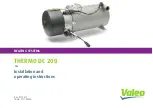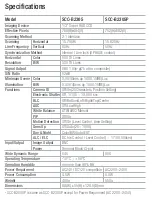
Lopass),
response of Hi, Lo and All pass filters with slopes of 12dB/oct.
0.4...2.0 (All-
pass)
0 dB
-18...+12 dB
GAIN defines the amplification (increase) or attenuation (reduction)
of parametric EQs or low shelving and high shelving equalizers.
first
first, second
ORDER (only available with All pass filters) sets the desired filter
order of an All pass filter. A 1st order All pass filter rotates the phase
by 180°, a 2nd order All pass filter rotates the phase by 360°.
BYPASS switches the corresponding filter ON (not engaged) or OFF
(engaged), which allows for quick A / B-evaluation of the actual effect
that a filter has on the sound.
Filter Editing via “Mouse Movement” in the Graphics Display
A white dot in the frequency response display represents an active filter (BYPASS not engaged). Clicking with the left
mouse button on this dot and keeping the mouse button pressed down allows changing the selected filter’s frequency
by moving the mouse to the left or to the right as well as its gain or cut (depending on the selected filter type) by
moving the mouse up or down. Clicking with the right mouse button on the white dot and keeping the mouse button
pressed down allows changing the Q-values of parametric EQs.
For an improved overview the name of the corresponding filter band appears in color as soon as the mouse cursor is
positioned over its white dot. An additional white graph indicates the frequency response of the actually selected filter.
X-OVER
The X-Over window allows accessing the frequency crossover with Hi- and Lo-Pass filters, a delay, gain-trim and
polarity selector switch, which are provided for each output channel of a sound system processor. By means of these
parameters you are able to correctly configure a multi-way speaker system’s individual frequency bands, compensate
for natural delays and adjust levels.
Clicking on the sixth block in the Flow Diagram Selector or on the X-OVER block in the large signal flow diagram opens
the X-Over window.
IRIS-Net
DIGITAL SOUND PROCESSOR | en 567
Bosch Security Systems B.V.
User Manual
2017.05 | 3.20 | F.01U.119.956
















































